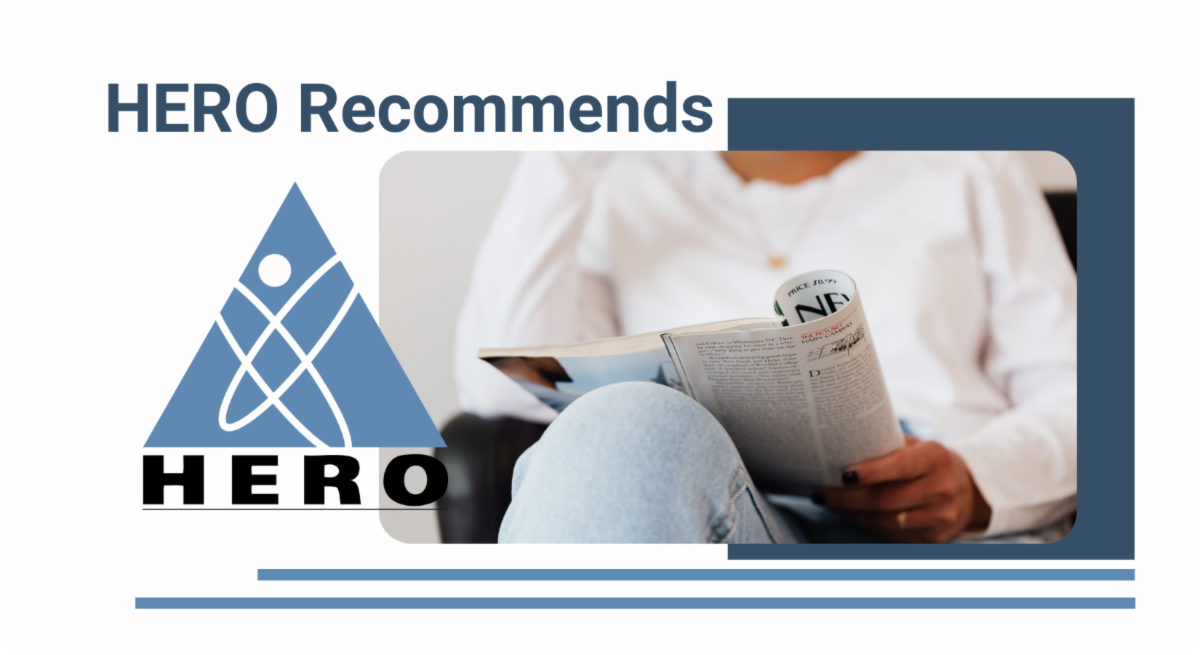November 2023 Briefs
Sharing Gratitude
The health benefits of gratitude are known, especially within this community, and are increasingly making mainstream headlines: reduces depression, lessens anxiety, supports heart health, relieves stress, improves sleep, boosts immunity. Following Forum23, the HERO team received an abundance of gratitude and affirmation from those of you who joined us in Salt Lake City.
“My experience … left me feeling nourished intellectually, inspired to address workforce challenges, and having made meaningful connections.”
“Always a joy to be with our ‘tribe’.”
“North Star in our industry”
WE are so grateful for each of you and your support of HERO and our partnership to connect science and well-being strategy. As a token of that gratitude, we have published a Forum23 Proceedings with a selection of highlights from the week. We didn’t have space to include it all, but the recordings are available for purchase and HERO members have access to the slides in the HERO Hub.
We will announce the Forum24 call for presenters in the next several days, so save the date to join us October 7-9, 2024, in Baltimore, MD.
With gratitude,
The HERO Team
HERO Member Hub
The HERO Forum23 slide presentations have been added to the HERO Hub. HERO members: Find all your favorite charts and graphs from the HERO Forum.
This month’s featured topic is leadership. Here are just two of the 30 (and growing) number of resources in the HERO Hub on leadership.
Would other members of your organization be interested in viewing these resources? Remember: member organizations receive an unlimited number of log-ins, so pass it along.
Click on any item to see the full piece. Log-in required to view these resources. Need a log-in? Contact Pat Rohner at pat.rohner@hero-health.org
Upcoming Events
Attention HERO Members:
Save the Date for Nashville in February 2024

2024 HERO Winter Think Tank
Brain Health and the Aging Workforce
February 26-27, 2024
Nashville, TN
The Baby Boomer generation makes up nearly thirty percent of the U.S. labor market, and a major transformation is afoot with about 10,000 people turning 65 each day for the next two decades. Long life spans, the need to keep socially active, and financial considerations are personal reasons for delaying retirement. Related to this, two out of three workers over the age of 45 say they have seen or experienced age discrimination, and the perception of age discrimination is much higher for women.
With an aging workforce comes greater sensitivity to the role of brain health in employee performance. HERO Senior Fellow Paul Terry has designed this Think Tank to explore the role of employers in supporting the lifestyle factors like sleep, diet, stress management, social connections, and physical activity that impact emotional well-being and cognitive functioning. We will review the evidence on the impact of mental health support, cognitive training programs such as memory games and problem-solving tasks, and the role of mindfulness exercises and flexible work arrangements that empower employees to improve self-care of brain health. We will examine common forms of ageism experienced by workers.
In our usual Think Tank fashion, we will plan structured times for HERO members to share their stories about their efforts to organize health and well-being initiatives responsive to the needs of their older associates.
HERO Learning Series
From Surviving to Thriving: Leveraging the Workforce to Deliver on the Mission
November 30, 2023 | 1:00pm CT / 2:00pm ET
Workforce is the most pressing challenge facing many sectors today. Critical staffing shortages continue, and there is loss of institutional memory as seasoned leaders resign and less experienced individuals rise quickly to leadership. Those who remain struggle to manage increased workloads and their own well-being. Energy spent on retention and recruitment limits innovation and growth. Burnout and job dissatisfaction were high pre-pandemic and have skyrocketed since. Designing a system-level structure that meets the needs of individuals is challenging. A high-level approach to professional well-being must incorporate the ability to customize services to teams and individuals within organizations. Examining what works at high-functioning institutions can drive meaningful change.
For almost a decade, University of Utah Health (U of U Health) has invested in a systemic approach to well-being at strategic, cultural, and leadership levels. It leverages skills and expertise across the health system to create its vision and road map. This webinar will review the journey to creating a culture of well-being through a systems approach that uses creativity and collaboration as keys to moving forward.

Amy Locke, MD, FAAFP, Chief Wellness Officer, University of Utah.

Paul Terry, PhD, Senior Fellow, HERO
Transforming Workplace Culture: Mental Health First Aid for Holistic Well-Being
December 13, 2023 | 12:00pm CT / 1:00pm ET
One in five US adults faces mental health challenges. Mental Health First Aid (MHFA) is a proactive solution that can help address multiple workplace priorities, including workplace safety and Diversity, Equity, Inclusion, and Belonging (DEIB). This webinar will explore the fundamental tenets of MHFA and how it can be an effective tool that enables managers and teams to skillfully identify, comprehend, and address mental health issues and substance use disorders. Research has demonstrated that individuals trained in MHFA show reduced stigma and increased empathy toward others, while also gaining skills and information to manage their own mental well-being.

Megan Hammes, MS, MCHES, Hammes Homestead and Consulting

Co-Host: David W. Ballard, PsyD, MBA, HERO

Co-Host: Karen Moseley, HERO
HERO Recommends

- Knowing Well, Reading Well: Dr. Jessica Grossmeier reviews her recommendations for books that connect the science and practice of workplace culture of health and well-being.
- HBR: Research: Firms with Diverse Boards Achieve Higher ESG Ratings. Continuing the Forum23 theme, this research makes a compelling case for DEI and a sustainable corporate future.
- HBR: Using Data to Improve Employee Health and Wellness. This article offers a four-part framework and reinforces the value of improving the health of the workforce as a long-term investment in your organization and society.



